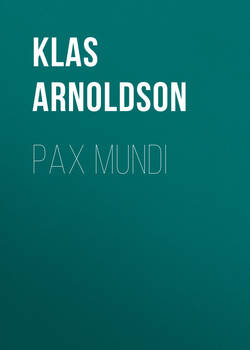Читать книгу Pax mundi - Arnoldson Klas Pontus - Страница 5
NEUTRALITY
ОглавлениеSide by side with the idea of arbitration, another pacific idea, already powerful, is pressing forward, and growing into an International Law, namely, the Law of Neutrality.
He is neutral, who neither takes part for, nor against, in a dispute. Neutrality is the impartial position which is not associated with either party. The State is called neutral which neither takes part in a war itself, nor in time of war sides with any of the warring parties.
In ancient times neutrality was not understood as a national right. Neither the Greek nor the Latin language has any word to express the idea. In the days when Roman policy was seeking to drag all the nations of the earth into its net, the Romans saw in other peoples only tributaries who had been subdued by their armies, subject nations who had submitted to the Roman yoke, allies who were compelled to join in their policy of conquest, or lastly enemies, who sooner or later would have to bow before their victorious legions. Neutral States there were none.
The centuries immediately following the dissolution of the Western Roman Empire were filled with constant strife. This continued long before the refining power which exists in the heart of Christianity began to show itself in the foreign relations of States.
The foundations of modern Europe were laid in war.
During the Crusades the whole of our continent was under arms. The struggle against the "infidel" was not simply a contest between one State and another, it was also a contest between Christian Europe and Mohammedan Asia. To be neutral in such a struggle would, according to the judgment of the time, have been equivalent to denying the faith. Within the European States, feudalism exerted no less a hindrance to the embodiment of the principle of neutrality. It would have been thought the gravest crime to loosen the bond of military service which compelled vassals to support with arms the cause of their feudal lords. It was only with the close of the age of feudalism, when Europe began to separate into three or four great monarchies, that neutrality in politics became a means of preserving the balance.
In later times increasing communication and trade have above all contributed to the development of neutral laws. Without the sanction of these, a naval war between two great nations would have made any maritime trade all but impossible. Down to the close of the last century, however, neutral rights were dependent either on national statutes or on special treaties concluded between one State and another. The law only gained certain international importance towards the close of the eighteenth century through the neutral alliances which from time to time were contracted between States.
In the period between 1780 and 1856 the subject gained an entrance by degrees among all maritime nations except England, who, independent of it, and always relying on her own strength, continuously sought to maintain unlimited domination at sea.
In 1854-56 begins, so far as neutrality is concerned, a new era of international law.
From this time the opposition which England raised to the practical application of neutrality in naval war may be regarded as having broken down. On the 30th of March, 1854, the French Minister of Foreign Affairs, Drouyn de Lhuys, published a communication, including, amongst other things, that the neutral flag during the then begun (Crimean) war, should be regarded as a protection for all neutral and hostile private property, except contraband of war. The same day the English Government gave forth in the London Gazette a similar declaration, and on April 19th of the same year the Russian Government notified in the Official Gazette
